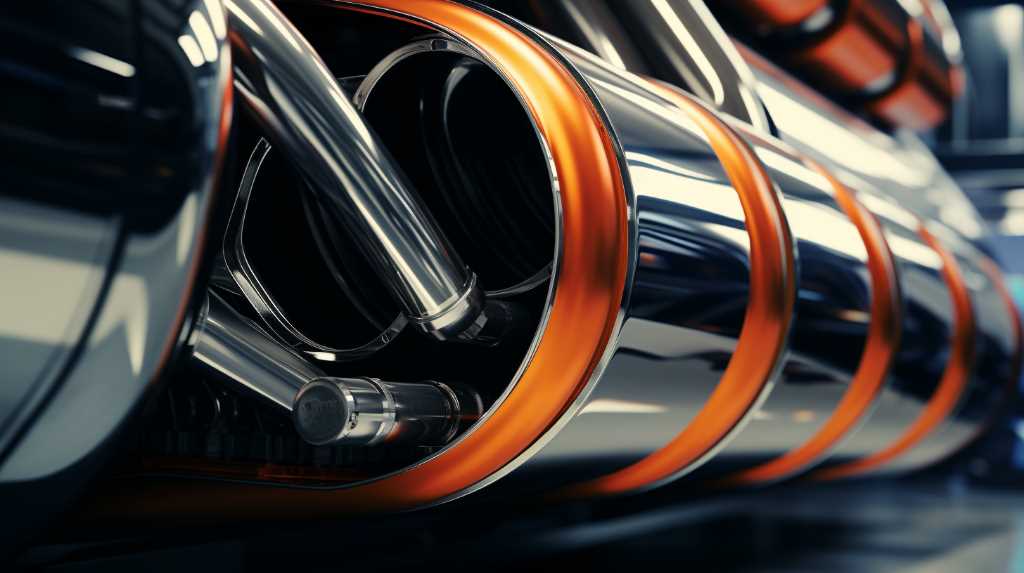Are you a car enthusiast looking to boost your ride’s performance? Look no further! In this ultimate guide, we’ll delve into the world of performance car exhaust systems. You’ll gain a deeper understanding of the different types available, discover the benefits of upgrading, and learn how to choose the right system for your needs. Get ready to unlock the power and efficiency your car deserves. Let’s dive in!
Key Takeaways
- Performance car exhaust systems enhance engine performance and efficiency by optimizing the flow of exhaust gases and reducing backpressure.
- These systems provide increased horsepower and torque, resulting in better acceleration and overall performance.
- Performance exhaust systems also contribute to fuel efficiency and savings.
- Additionally, upgrading to a performance exhaust system adds a deep, aggressive roar to the car’s sound, enhancing the overall driving experience.
The Importance of Performance Car Exhaust Systems

If you want your performance car to reach its full potential, it’s essential that you understand the importance of a high-quality exhaust system. A performance car is built for power, speed, and precision, and the exhaust system plays a crucial role in enhancing these qualities.
A high-quality exhaust system not only improves the sound of your car but also increases its performance and efficiency. One of the main functions of an exhaust system is to remove the gases produced during combustion. A high-quality exhaust system allows for the efficient flow of these gases, reducing back pressure and improving engine performance. By improving the flow of exhaust gases, you can unleash the full power of your engine, resulting in faster acceleration and higher top speeds.
Additionally, a high-quality exhaust system can enhance the overall driving experience. The deep, aggressive roar produced by a well-designed exhaust system not only adds to the aesthetics of your car but also gives it a commanding presence on the road. This exhilarating sound can bring a sense of excitement and satisfaction every time you rev the engine.
Furthermore, a high-quality exhaust system can also contribute to fuel efficiency. By optimizing the flow of exhaust gases, it helps the engine work more efficiently, reducing fuel consumption. This can result in significant savings over time, especially for those who frequently drive long distances.
Understanding the Different Types of Performance Car Exhaust Systems
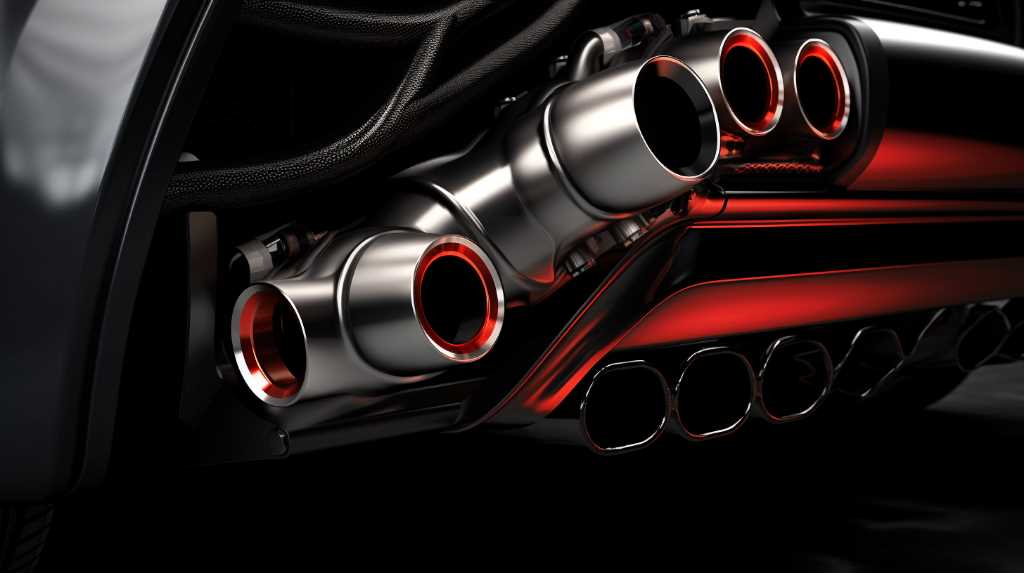
Now, let’s talk about the different types of performance car exhaust systems. Aftermarket exhausts offer several benefits, such as improved horsepower and torque, enhanced sound, and reduced weight.
Choosing the right system for your car is crucial, as it can affect performance and sound. Additionally, common exhaust modifications, such as installing headers or a high-flow catalytic converter, can further enhance the performance of your car’s exhaust system.
Benefits of Aftermarket Exhausts
You can experience a significant improvement in performance and sound by installing an aftermarket exhaust system on your performance car. Aftermarket exhausts are specifically designed to enhance the overall performance of your vehicle.
One of the main benefits is increased horsepower and torque. By replacing the stock exhaust system with an aftermarket one, you can optimize the flow of exhaust gases, allowing the engine to breathe more efficiently. This leads to a boost in power and acceleration.
Additionally, aftermarket exhausts can also improve the sound of your car. Many performance enthusiasts enjoy the deep and aggressive tone that aftermarket exhausts provide.
These exhaust systems are often built with high-quality materials like stainless steel or titanium, ensuring durability and longevity.
Choosing the Right System
When considering a performance car exhaust system, it’s important to understand the different types available. There are three main types to choose from: cat-back exhaust systems, axle-back exhaust systems, and header-back exhaust systems.
Axle-Back Exhaust Systems: These axle-back exhaust systems replace the parts of the exhaust system from the rear axle to the exhaust tips. They are the simplest and typically the most cost-effective option for modifying your exhaust. These systems can provide a more aggressive sound and a slight increase in performance, but the gains are usually less significant than with other types of systems.
Cat-Back Exhaust Systems: Cat-back exhaust systems are the most popular choice as they provide a balance between power and sound. They replace the exhaust system from the catalytic converter to the rear of the vehicle. Axle-back exhaust systems are a more affordable option as they only replace the exhaust system from the rear axle to the rear of the vehicle. They offer a slight increase in power and a deeper exhaust note.
Header-Back Exhaust Systems: Header-back exhaust systems are the most comprehensive option as they replace the entire exhaust system from the headers to the rear of the vehicle. They provide the most significant power gains and a louder, more aggressive sound. Understanding the different types of performance car exhaust systems will help you make the right choice for your needs and preferences.
Turbo-Back Exhaust Systems: A turbo-back exhaust system is a type of performance exhaust system used primarily on vehicles equipped with turbochargers. As the name suggests, a turbo-back exhaust system replaces the entire exhaust system from the outlet of the turbocharger all the way to the tailpipe.
Common Exhaust Modifications
If you’re looking to enhance the performance of your car’s exhaust system, it’s important to understand the different types of common exhaust modifications available. One common modification is the installation of a performance muffler. This can improve exhaust flow and increase horsepower.
Another popular modification is the addition of a high-flow catalytic converter. This helps reduce exhaust backpressure and allows for better airflow. Additionally, many car enthusiasts choose to install headers, which replace the stock exhaust manifold. Headers are designed to improve exhaust scavenging and increase engine efficiency.
Lastly, some people opt for a cat-back exhaust system, which replaces the exhaust system from the catalytic converter to the rear of the car. This modification can improve both performance and sound. Understanding these common exhaust modifications can help you choose the best option to enhance your car’s performance.
Benefits of Upgrading to a Performance Car Exhaust System

Upgrading to a performance car exhaust system can significantly enhance your driving experience. By investing in a high-quality exhaust system, you can enjoy several benefits that will make your time on the road even more enjoyable.
One of the primary advantages of upgrading to a performance car exhaust system is the increase in horsepower and torque. A performance exhaust system is designed to minimize back pressure, allowing the engine to breathe more freely. This improved airflow leads to a boost in power, giving you better acceleration and overall performance.
Not only will a performance exhaust system increase your car’s performance, but it can also improve fuel efficiency. The improved airflow helps to optimize the combustion process, resulting in better fuel economy. This means you can go further on each tank of gas and save money in the long run.
A performance exhaust system can enhance the sound of your car. With a deeper and more aggressive tone, your car will turn heads wherever you go. The enhanced exhaust note adds a sense of excitement and exhilaration to your driving experience.
Lastly, upgrading to a performance car exhaust system can also increase the resale value of your vehicle. Many car enthusiasts appreciate the added performance and unique sound that a performance exhaust system provides, making your car more desirable in the used car market.
Factors to Consider When Choosing a Performance Car Exhaust System
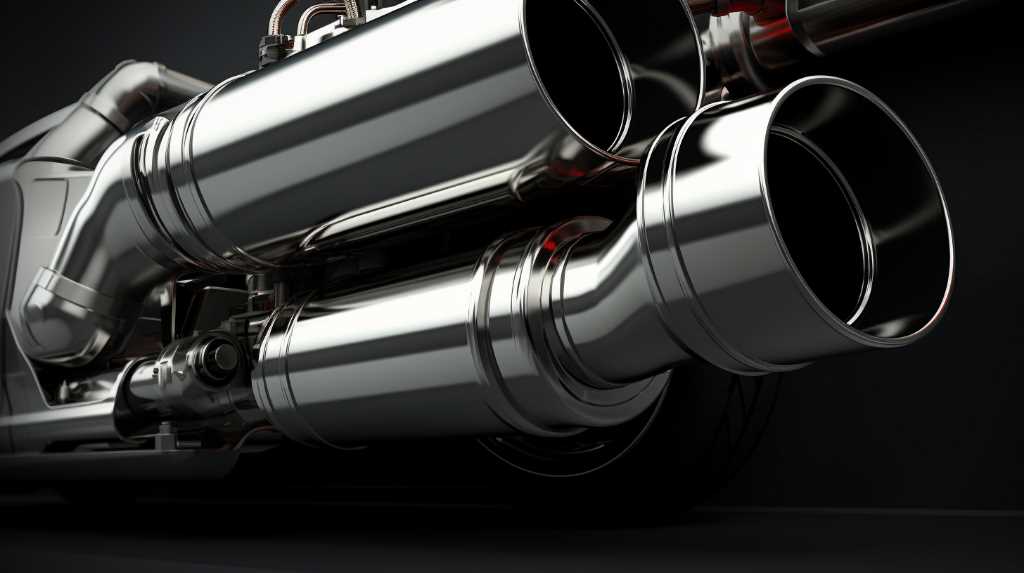
Consider your budget when choosing a performance car exhaust system. The price range for these systems varies widely, so it’s important to determine how much you’re willing to spend before making a decision. Keep in mind that a higher price doesn’t always guarantee better quality or performance. It’s also important to consider the type of car you have and its specific needs. Different exhaust systems may be better suited for certain makes and models, so do your research and make sure the system you choose is compatible with your car.
Another factor to consider is the material of the exhaust system. Stainless steel is a popular choice due to its durability and resistance to corrosion, but it can be more expensive than other materials. Lastly, think about the sound you want your car to make. Some exhaust systems are designed to produce a loud and aggressive sound, while others provide a more subtle and refined tone. Consider your personal preferences and choose a system that matches your desired sound profile.
The Science Behind Performance Car Exhaust Systems
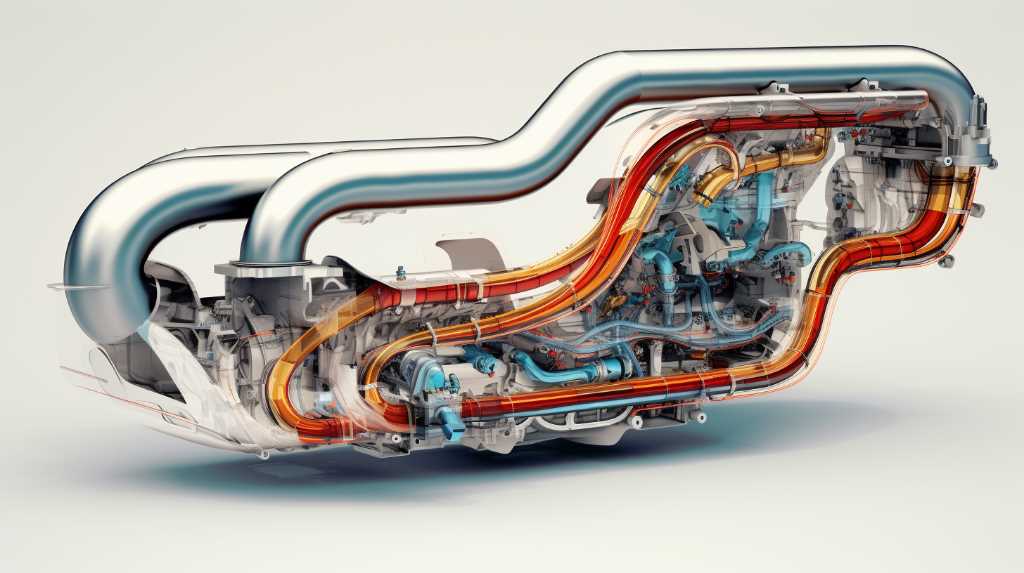
To fully understand the benefits of performance car exhaust systems, it’s important to delve into the science behind how they work. These systems are designed to optimize the flow of exhaust gases from the engine, resulting in improved performance and sound.
The key component in a performance exhaust system is the muffler. It’s responsible for reducing noise levels and controlling backpressure. The muffler achieves this through a series of chambers and baffles that allow the exhaust gases to expand and slow down, reducing noise and increasing efficiency.
Additionally, performance exhaust systems often feature larger diameter piping compared to stock systems. This allows for a faster and smoother flow of exhaust gases, minimizing restrictions and maximizing power output. The materials used in performance exhaust systems also play a crucial role. Stainless steel is commonly used due to its durability and resistance to corrosion. Titanium is another option, known for its lightweight properties.
Installation Process of a Performance Car Exhaust System
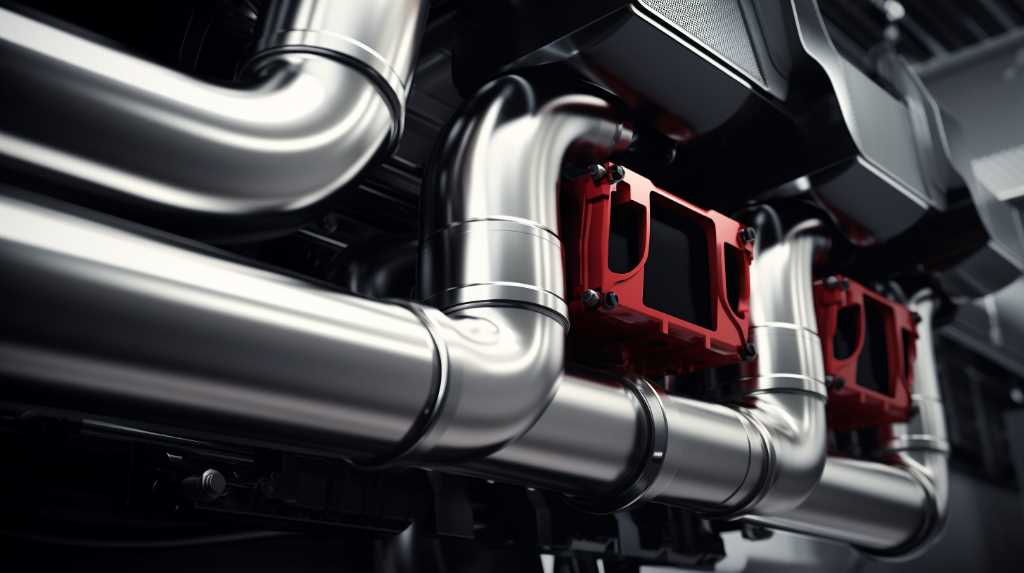
Now that you’ve chosen the perfect performance car exhaust system for your vehicle, it’s time to install it. Before you begin, gather the necessary tools such as wrenches, sockets, and a jack. As you go through the installation process, keep in mind the importance of proper alignment and consider seeking professional help if needed.
Tools Needed for Installation
You will need a few essential tools for installing a performance car exhaust system. The first tool you’ll need is a socket set, which will help you remove and install bolts and nuts with ease. Make sure to have a variety of socket sizes to accommodate different parts of the exhaust system.
Additionally, a torque wrench is necessary to ensure that all bolts are tightened to the correct specifications. A saw or cutter will also be needed to trim the exhaust pipes to the appropriate length.
A rubber mallet or hammer will come in handy for any small adjustments that need to be made during the installation process. Lastly, don’t forget to have safety goggles and gloves to protect yourself while working under the car.
With these tools in hand, you’ll be ready to install your performance car exhaust system.
Tips for Proper Alignment
Aligning the performance car exhaust system properly is crucial for optimal performance and sound. When installing a performance exhaust system, it’s important to ensure that all components are aligned correctly. Start by carefully positioning the exhaust system under the car, making sure that it’s centered and level. Use adjustable hangers to fine-tune the alignment, ensuring that the exhaust pipes are properly aligned with the body of the car.
It’s also essential to check for any clearance issues, making sure that the exhaust system doesn’t come into contact with any other components or the body of the car. Take your time to adjust and align the system properly, as a well-aligned exhaust system not only enhances performance but also produces a more enjoyable and aggressive sound.
Importance of Professional Installation
To ensure optimal performance and avoid potential issues, it’s crucial to have a professional install your performance car exhaust system correctly. While it may be tempting to try and install it yourself, professional installation offers several key benefits.
Firstly, professionals have the expertise and experience to ensure that the installation is done correctly and efficiently. They know the ins and outs of the specific exhaust system you’re using and can make any necessary adjustments to optimize its performance.
Additionally, professional installation ensures that all components are properly aligned and secured, minimizing the risk of leaks or other issues. Finally, having a professional install your exhaust system can help you avoid potential warranty issues, as many manufacturers require professional installation to maintain warranty coverage. Don’t risk compromising the performance of your car – leave the installation to the professionals.
Tips for Maintaining and Caring for Your Performance Car Exhaust System

Keeping up with regular maintenance and care for your performance car exhaust system is crucial to ensure optimal performance and longevity. Here are some tips to help you maintain and care for your exhaust system. Firstly, it’s important to regularly inspect your exhaust system for any signs of damage or wear. Look for rust, cracks, or loose hangers. If you notice any issues, it’s important to address them promptly to prevent further damage.
Secondly, make sure to clean your exhaust system regularly. Use a mild detergent and a soft cloth to remove any dirt or debris that may have accumulated. Avoid using abrasive cleaners or brushes as they can scratch the surface. Additionally, it’s important to keep an eye on your exhaust system’s heat shields. These shields help protect the surrounding components from excessive heat. Inspect them regularly and replace any damaged or missing shields. Furthermore, consider investing in a high-quality exhaust system cover. This will provide added protection against road debris and harsh weather conditions.
Lastly, don’t forget to schedule regular inspections and maintenance with a professional mechanic. They can help identify any potential issues and perform necessary repairs or replacements.
Common Misconceptions About Performance Car Exhaust Systems
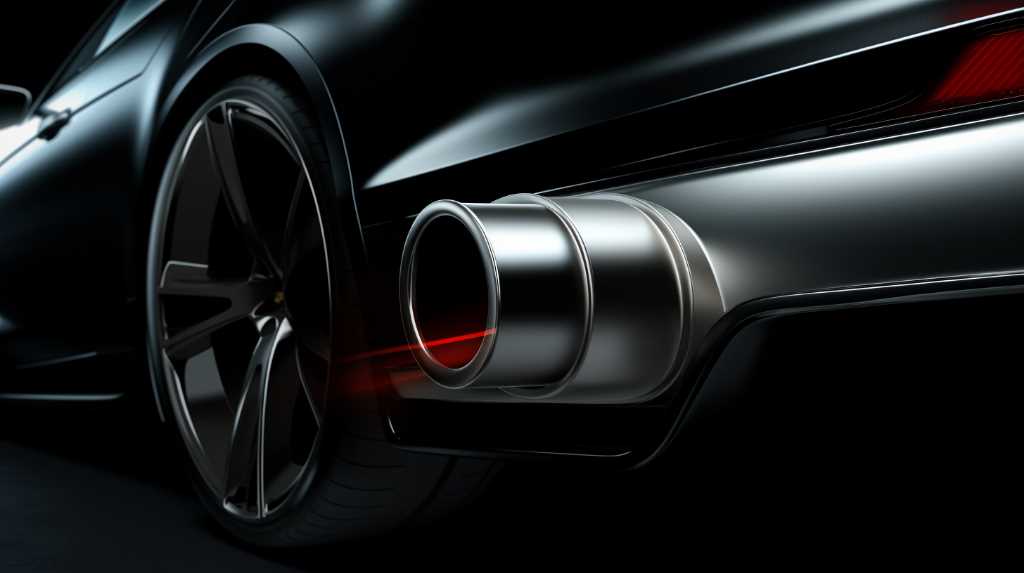
There are several misconceptions about performance car exhaust systems, but one of the most common is that they only provide a marginal increase in horsepower. Many people believe that upgrading the exhaust system will only result in a slight bump in power, and that it’s not worth the investment. However, this couldn’t be further from the truth.
A performance car exhaust system can actually provide a significant increase in horsepower. By optimizing the flow of exhaust gases, these systems can help your engine breathe better and operate more efficiently. This improved airflow leads to a noticeable boost in power output.
In addition to increased horsepower, a performance exhaust system can also enhance torque. By reducing back pressure and improving exhaust gas scavenging, these systems can improve low-end torque and mid-range power delivery. This means improved acceleration and better overall performance.
Another misconception about performance car exhaust systems is that they’re only beneficial for racing or track purposes. While it’s true that these systems are popular among racing enthusiasts, they can also greatly benefit everyday drivers. A performance exhaust can improve the driving experience by providing a deeper, more aggressive sound and enhancing the overall driving dynamics.
The Impact of Performance Car Exhaust Systems on Engine Performance
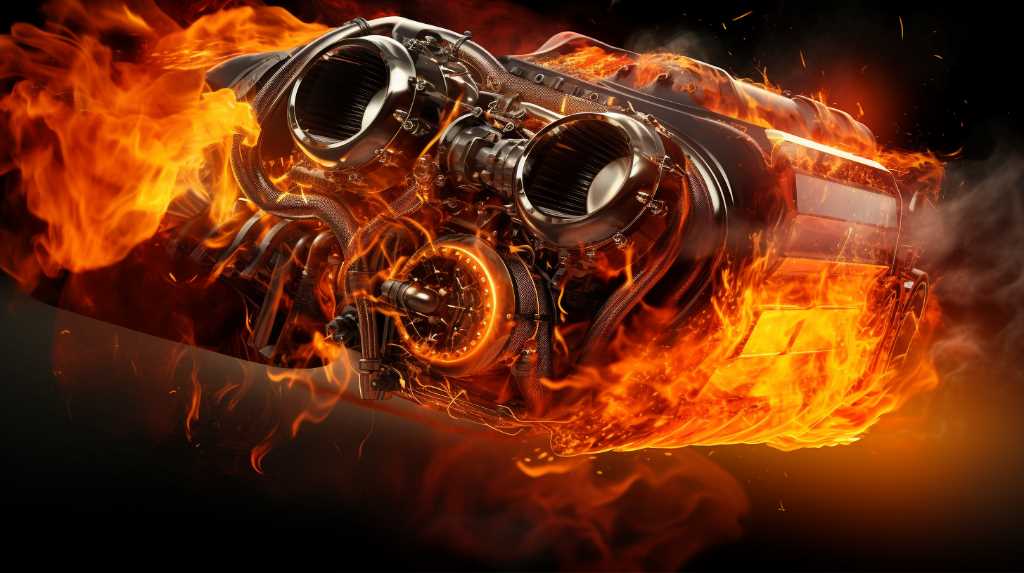
When it comes to performance car exhaust systems, you can expect some impressive benefits for your engine. Firstly, these systems can provide increased horsepower and torque, giving your car that extra power you crave. Secondly, they improve exhaust flow, allowing gases to exit the engine more efficiently and enhancing overall performance. Lastly, performance exhaust systems offer an enhanced engine sound, giving your car a more aggressive and thrilling tone.
Increased Horsepower and Torque
To increase your car’s horsepower and torque, upgrading your exhaust system can make a significant difference. A performance car exhaust system is designed to optimize airflow and reduce back pressure, which in turn improves engine efficiency and power output.
By replacing the stock exhaust system with a high-performance one, you can achieve better engine performance and responsiveness. The increased diameter of the exhaust pipes allows for smoother and faster evacuation of exhaust gases, resulting in improved horsepower and torque.
Additionally, performance exhaust systems often feature high-flow mufflers and catalytic converters, which further enhance exhaust gas flow and reduce restrictions. This improved exhaust flow leads to increased engine power, as more air and fuel can be burned efficiently.
Improved Exhaust Flow
Upgrading to a performance car exhaust system can significantly improve your engine’s performance by allowing for a more efficient and unrestricted flow of exhaust gases. When your engine operates, it produces exhaust gases that need to be expelled from the system. A stock exhaust system may have limitations that restrict the flow of these gases, resulting in reduced engine performance.
However, a performance exhaust system is designed to optimize the flow of exhaust gases, allowing them to exit the system more freely. This improved exhaust flow helps to reduce backpressure, which is the resistance encountered by the exhaust gases as they try to exit the system.
Enhanced Engine Sound
Have you ever wondered how a performance car exhaust system can enhance your engine’s sound while also improving its performance? Well, it all comes down to the design and construction of the exhaust system. When you install a performance exhaust system, it allows the engine to breathe more efficiently, which in turn improves its overall performance. By increasing the diameter of the exhaust pipes and using high-quality materials, performance exhaust systems reduce back pressure and increase exhaust gas flow. This not only improves horsepower and torque but also creates a deeper and more aggressive engine sound.
The exhaust note becomes more pronounced and resonant, giving your car a distinctive and exhilarating sound. So, if you’re looking to enhance both the performance and sound of your engine, a performance car exhaust system is definitely worth considering.
Upgrading Your Performance Car Exhaust System: When and Why

If you’re looking to boost your car’s performance, upgrading your exhaust system is a great option. Not only does it enhance the overall performance of your vehicle, but it also provides several other benefits that can greatly improve your driving experience.
So, when should you consider upgrading your performance car exhaust system, and why? The answer to this question lies in understanding the role of the exhaust system in the overall performance of your car. Firstly, upgrading your exhaust system becomes necessary when you want to increase the power and torque of your car. A high-performance exhaust system allows for improved airflow, which in turn enhances the engine’s efficiency and power output. This can result in faster acceleration and better overall performance on the road.
Secondly, upgrading your exhaust system can lead to better fuel efficiency. A well-designed exhaust system can reduce backpressure and improve the engine’s ability to expel exhaust gases, allowing for a more efficient combustion process. This, in turn, can improve your car’s fuel economy, saving you money at the pump.
Lastly, upgrading your exhaust system can also enhance the sound of your car. A performance exhaust system can provide a deeper, more aggressive sound, giving your car a unique and sporty character. This can greatly enhance your driving experience and make your car stand out from the crowd.
Frequently Asked Questions
How Much Does a Performance Car Exhaust System Cost on Average?
On average, a performance car exhaust system costs around $1,000. However, prices can vary depending on factors such as the brand, materials used, and the specific model of your car.
Are Performance Car Exhaust Systems Legal in All States/Countries?
Performance car exhaust systems may not be legal in all states/countries. It is important to check local regulations before installing one. Penalties for non-compliance can include fines and vehicle impoundment.
Can a Performance Car Exhaust System Improve Fuel Efficiency?
Yes, a performance car exhaust system can improve fuel efficiency. By increasing airflow and reducing backpressure, it allows the engine to expel exhaust gases more efficiently, resulting in better fuel economy.
What Are the Potential Drawbacks or Disadvantages of Upgrading to a Performance Car Exhaust System?
Upgrading to a performance car exhaust system can have potential drawbacks. These may include increased noise levels, reduced backpressure that could affect low-end torque, and the possibility of violating emissions regulations.
How Long Does a Performance Car Exhaust System Typically Last Before Needing to Be Replaced?
Performance car exhaust systems typically last around 5 to 10 years before needing replacement. Factors such as driving conditions, maintenance, and quality of the system can affect its lifespan. Regular inspections and maintenance can help prolong its life.
Conclusion
In conclusion, upgrading to a performance car exhaust system can have numerous benefits. It not only enhances the sound and appearance of your vehicle, but also improves engine performance by increasing horsepower and torque. By understanding the different types of exhaust systems and considering factors such as material and design, you can make an informed decision on the best system for your car. Regular maintenance and care will ensure its longevity, allowing you to enjoy the full potential of your performance car.

Hey there, I’m Terra Frank, the driving force behind Motion Performance Motor Sports. I’m thrilled to have you here, exploring the fascinating world of cars, trucks, and everything related to automotive performance and accessories.

